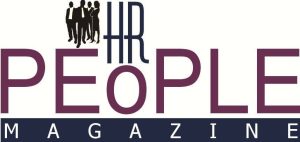By Ilse Phillips
“We all make the same types of mistakes over and over, because of the basic wiring of our brains.” — Dan Ariely
Rethinking Rationality in the Workplace
As HR leaders, we often assume that employees make decisions based on thorough, rational consideration. However, revolutionary research by behavioural economist and Duke University professor Dan Ariely uncovers a different truth: human choices are deeply influenced by subtle environmental factors, cognitive biases, and emotional states.
In his 2008 non-fiction book Predictably Irrational: The Hidden Forces That Shape Our Decisions, Ariely asserts that irrational behaviour is not random—it is systematic, predictable, and open to strategic intervention. Understanding these patterns provides HR professionals with powerful tools to redesign workplace culture, policies, and performance strategies.
Through a range of experiments, Ariely shows how decisions are influenced by factors such as default options, social norms, and emotional states—revealing how far we stray from pure rationality. This insight is transformative for HR professionals. Consider these common examples of employee behaviour:
• Default Options: Employees often stick with pre-selected benefits plans, even when better options exist.
• Peer Comparisons: Perceptions of fairness around salaries and promotions are driven more by comparisons than actual value.
• Stress-Induced Choices: Under pressure, employees are more prone to shortcuts or unethical choices.
By identifying these patterns, HR leaders can design systems that guide employees toward more effective and ethical decisions.
Why We Make Irrational Decisions — and How HR Leaders Can Help
1. The “Fudge Factor”
Ariely’s “fudge factor” describes how people often cheat a little, yet still view themselves as honest. This affects day-to-day workplace decisions—like slight expense report exaggerations or time theft.
How to remedy:
Promote a culture of transparency. Use ethical reviews, reinforce company values in strategy sessions, and implement systems like regular audits or reminders around honest reporting.
2. Relative Decision-Making
Rather than assessing options in isolation, employees make decisions based on comparisons. A raise might seem insignificant if a colleague receives more, regardless of the objective benefit.
How to remedy:
Structure compensation and career progression plans using objective, transparent criteria. Minimize jealousy and perceived unfairness with clear communication and unbiased evaluation systems.
3. Emotional Influence
Emotions such as stress, anger, or excitement can heavily sway decisions. For example, a stressed manager might overlook an employee’s achievements.
How to remedy:
Encourage “cooling-off” periods before critical decisions. Train leaders to identify and manage emotional bias during evaluations and interactions.
4. Social Norms
Employees often mirror what they perceive as “normal” behaviour in the workplace. If corner-cutting is common, unethical actions may become normalized.
How to remedy:
Showcase and reward teams that act with integrity and collaboration. Promote positive behaviours to reshape internal norms.
Strategic Implications for HR Policy Design
Ariely’s findings inspire a new approach to designing HR frameworks:
• Leverage default settings to nudge employees towards beneficial behaviours (e.g., auto-enrolment in pension plans).
• Introduce bias-aware training to help managers spot irrational behaviour in hiring or evaluations.
• Simplify compliance processes to reduce temptation for rule-breaking.
• Build and promote a culture of ethical behaviour to prevent small, habitual missteps.
• Develop incentive systems that account for emotional and social influences, not just logic and performance.
The Takeaway
Recognising predictable irrational patterns allows HR leaders to design smarter systems and environments where decisions align with both personal values and organisational goals.
By designing with, not against, human nature, HR professionals can:
• Improve workplace decision-making
• Support ethical conduct
• Strengthen company culture
Ariely reminds us to be more aware of the subtle, irrational influences that drive our actions. While we can’t eliminate irrationality entirely, understanding it empowers us to make better choices—at work and in life.

Ilse Phillips,
Owner, Cool Teachings
